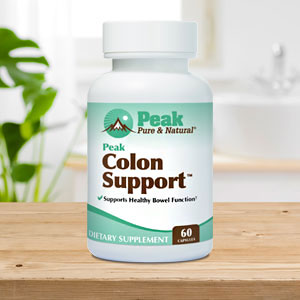Get Easy Health Digest™ in your inbox and don’t miss a thing when you subscribe today. Plus, get the free bonus report, Mother Nature’s Tips, Tricks and Remedies for Cholesterol, Blood Pressure & Blood Sugar as my way of saying welcome to the community!
6 simple ways to keep kidney disease from striking you

I’m sure you’ve heard your share of advice about heart disease — what symptoms to watch out for, the biggest risk factors, steps you can take to prevent it. But do you know what you don’t hear nearly as much about? Kidney disease, even though it’s closely connected to heart disease.
People with kidney disease are much more likely to develop heart disease (in fact, heart disease is the No. 1 cause of death for kidney disease sufferers). And people with heart disease are much more likely to develop kidney disease. That may be at least partially because the diseases share two of the same main causes — diabetes and high blood pressure. It’s also because poorly functioning kidneys can trigger damage to other organs, including your heart.
But you may still be wondering… what is kidney disease, exactly? And how common is it?
Well, about 37 million people in the U.S. have chronic kidney disease, although many are unaware that they have it. That’s because, sometimes, it has no symptoms. And when it does have symptoms, they can be vague things like tiredness or malaise. But that doesn’t make it any less dangerous…
People with chronic kidney disease have damaged kidneys that are unable to filter out bodily wastes and fluids the way they’re supposed to. This leaves harmful levels of wastes circulating in your body, which can damage other organs (like your heart and brain). So, how can you keep your kidneys safe and healthy?
Well, new research just identified six lifestyle changes you can make right away to keep your kidneys in tip-top shape…
Lifestyle changes that reduce kidney disease risk by over 20%
A research review led by researchers at Karolinska Institutet in Sweden and Griffith University in Australia found that lifestyle plays a big role in the development of chronic kidney disease and determined which lifestyle changes make the biggest dent in your risk.
The review included data from over 100 published research papers, which included more than 2.5 million people. Researchers looked at a variety of lifestyle habits and examined how they applied to those who eventually developed kidney disease and those who didn’t. Based on this analysis, here are the factors they found could reduce your risk of developing kidney disease most:
- Eating a more vegetable-rich diet
- Increasing your potassium intake
- Getting more exercise
- Consuming less alcohol
- Consuming less salt
- Quitting smoking
Researchers say that following these recommendations could reduce your risk of chronic kidney disease by anywhere between 14 and 22 percent. The good news is, these are healthy habits that you’re most likely practicing anyway… especially if you’re actively trying to prevent other diseases like heart disease, diabetes and cancer.
What you need to know about potassium and kidney disease
Now, most of the recommended lifestyle changes from this study are healthy living 101… but there was one piece of advice that I’d like to elaborate on further. And that’s increasing your potassium intake. Why does increasing your potassium intake influence your risk of developing kidney disease?
Most likely because potassium has been shown to fend off high blood pressure… and high blood pressure is one of the leading causes of chronic kidney diseases. So, if you’re a healthy person who wants to prevent chronic kidney disease, it’s important to eat plenty of potassium-rich foods, like:
- Asparagus
- Avocados
- Bananas
- Cantaloupe
- Spinach
- Honeydew melon
- Kiwis
- Nectarines
- Oranges
- Potatoes
- Tomatoes
- Winter squash
If you’re someone who already has kidney disease, however, getting too much potassium can be dangerous. That’s because your kidneys are in charge of balancing potassium levels in your body. If they’re not functioning at full capacity, you can end up with potassium levels that are too high, which can cause serious cardiac symptoms. So, while the advice from this study is great for healthy people who want to keep their kidneys performing well, it’s not designed for people who already have kidney disease.
Editor’s note: There are perfectly safe and natural ways to decrease your risk of blood clots including the 25-cent vitamin, the nutrient that acts as a natural blood thinner and the powerful herb that helps clear plaque. To discover these and other secrets of long-lived hearts, click here for Hushed Up Natural Heart Cures and Common Misconceptions of Popular Heart Treatments!
Sources:
These lifestyle choices can reduce the risk of chronic kidney disease — EurekAlert!
Modifiable Lifestyle Factors for Primary Prevention of CKD: A Systematic Review and Meta-Analysis —Journal of the American Society of Nephrology.
Heart disease & chronic kidney disease (CKD) — American Kidney Fund.
Heart Disease & Kidney Disease — National Institute of Diabetes and Digestive and Kidney Diseases.
Chronic Kidney Disease Basics — Centers for Disease Control and Prevention.
Potassium and Your CKD Diet — National Kidney Foundation.
Potassium Homeostasis, Chronic Kidney Disease, and the Plant-Enriched Diets — Kidney360.
Potassium —MedlinePlus.
How Are Chronic Kidney Disease and High Potassium Related? — Healthline.













